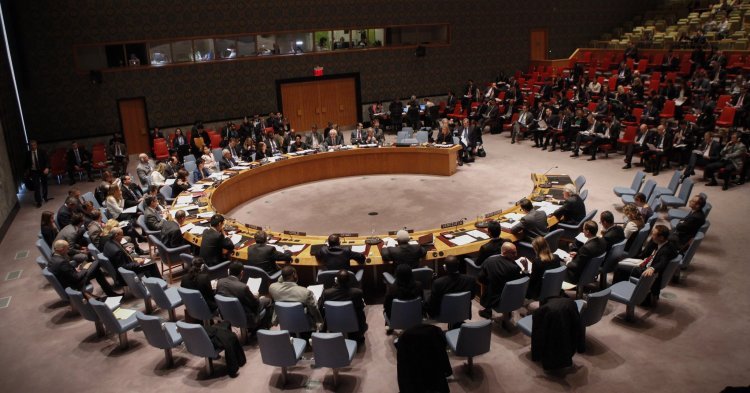Dear people interested and working in European affairs,
In this election year, there’s a lot of talk about Europe, democratic deficit and the European Parliament’s right of legislative initiative, about participation of citizens, Europe’s role in the world, and its advocacy for human rights and democracy. But be honest now: Who of you actually mentions security policy, which is an integral part of the Common Foreign and Security Policy of the EU, during these talks? Way too few! In Germany, we talk too little and too uptightly about security policy. But in the face of rising global crises, new transnational challenges and new kinds of uncertainty, this conversation is needed more than ever since the end of the Cold War.
I am not saying that people like you, who are interested in and dedicated to Europe, completely reject this topic. However, I am sensing a fundamental scepticism to talk about security policy. Many might ask themselves: Europe is the peace project par excellence, why should we heat up an already complicated debate with terms like “hybrid threats” or “European army”? This question arises especially concerning Germany with its deeply rooted and publicly accepted culture of military restraint. But today, Germany is part of an EU whose 2016 Global Strategy included the promotion of freedom and security. As European citizens we need to reflect on which kind of security policy we want and what we object to. Therefore, we need an open dialogue – so let’s talk about it!
But in trying to establish this dialogue, we often reach a point when the diversity of our community of dedicated Europeans becomes both a blessing and a curse. The non-partisanship of many European initiatives and societies can be an advantage, but in debates about security policy it mostly turns into a drawback. When talking about security policy the leftists among us tend to rigorously dismiss the debate, sensing a “militarisation” of the EU, while the conservatives blame the leftists for avoiding a topic deemed so essential and call them “backward hippies”. This causes the debate to cease before really beginning.
Instead of arguments, polemical terms are being exchanged. Meanwhile, how do we explain to citizens that their political representatives can neither agree on a common stance on Russian interference in election campaigns nor enable the cooperation of Member States’ armies abroad due to significant differences between their technical conditions and administrative rules? Usually we do not explain this in the German sphere; maybe in a subordinate clause. It would be up to you – those who deal with Europe on a daily basis – to address these issues and to point out options for an integrated security policy in Europe.
What’s so fantastic about Europe is the possibility to learn from each other – also regarding the discourse about security policy. During my two and a half years in France, I was amazed at how openly they debate about security policy. Not that I’m supporting everything on the French security policy agenda, but there is a lot to learn from the way they deal with the topic of security in public space and from the enthusiasm of our French neighbours to discuss the topic. There is no taboo to speak about security policy. While at German universities mentioning the possibility of a European army can earn you the title of a right-leaning “war-monger”, in France there is a factual debate that is much less ideologically charged than in Germany. Security policy is not a dirty word and whoever uses it, won’t be judged. For us as people interested and committed to Europe, that is hugely important. Obviously, not everyone who is interested in European social policy or citizen participation must fall in love with this topic as well. But by not addressing it at all, we leave it to the populists – which we simply must not do.
Security Policy is changing and so must the discourses. Talking about security policy today, we are not primarily discussing nuclear armament and the “mutually assured destruction” doctrine. Security policy today is much more complex, it is about international terrorism, the security dimension of climate change, hybrid threats such as interference in election campaigns, the new possibilities of cross-border cyberattacks. Because all these are challenges that one state alone cannot solve, it is the logical consequence to address them at the European level. When we discuss what European foreign policy looks like at a time when the US is withdrawing from multilateral structures, we must necessarily include security policy. We need to consider when and how European armed forces can be deployed for peacekeeping in EU missions, and how their cooperation can be improved. Above all, however, ideas for a European security policy are needed to explain how the EU intends to achieve its self-imposed goal of promoting peace and security.
Consequently, it is important to have young people interested and committed to Europe slowly breaking the taboo on the security policy debate. Grassroot think-tanks like Polis180 present papers with options for European security and defence policy, and within its Europa Machen (“Making Europe”) EP elections campaign, JEF Germany not only calls for a joint European seat in the UN Security Council but also for the formulation of concepts on how a European army could look. In doing so, they are laying the founding stones for a debate on European security policy and achieving what really counts: not preconceived “truths” but that we finally talk about security policy.
In brief, dear people of the European affairs community, no matter whether you talk about security policy in a political debate or just in a pub with friends – the essential thing is that you do it!
Best wishes,
Gesine



Follow the comments: |
|
